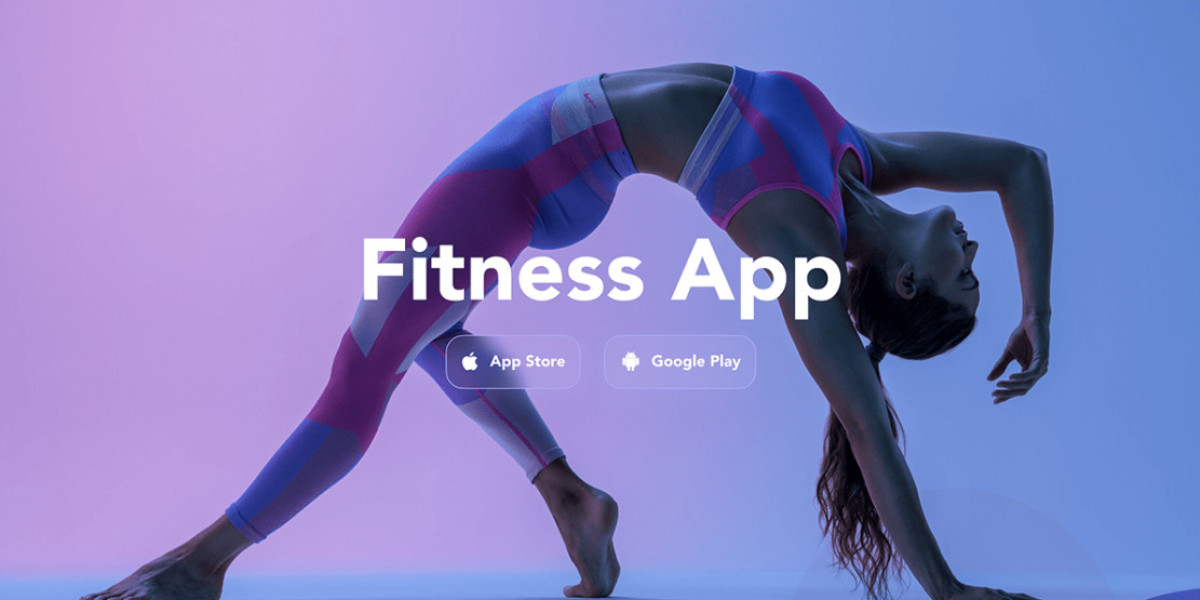In today's fast-paced world, staying fit and healthy has become a top priority for many. This growing awareness of health and fitness has led to a significant increase in the demand for fitness apps. These apps serve as personal trainers, helping users track their progress, set goals, and stay motivated to lead a healthier lifestyle. To stand out in the competitive fitness app market, developers need to incorporate advanced features that not only engage users but also deliver value. In this article, we will explore the top advanced features that can make your fitness app a success.
1. Personalized Workouts
One of the key features of a successful fitness app is personalized workouts. Users appreciate apps that tailor exercise routines to their fitness levels, goals, and preferences. Incorporating a comprehensive onboarding process that asks users about their fitness goals, experience, and available equipment can help in creating personalized workout plans. Algorithms can then recommend exercises and routines that match the user's profile, making the app feel like a personal trainer.
2. Artificial Intelligence (AI) Integration
AI has become a game-changer in the world of fitness apps. Through AI, apps can provide real-time feedback and adjust workout plans based on user performance. For example, if a user is struggling with a specific exercise, the app can suggest alternative moves or offer form correction tips. AI can also analyze data over time to provide insights and predict trends in a user's fitness journey.
3. Gamification
Gamification is a powerful tool to keep users engaged. By integrating elements like leaderboards, badges, and challenges, you can make the fitness experience more fun and competitive. Users can compete with friends or other app users, earning rewards and recognition for their achievements. This not only fosters a sense of accomplishment but also keeps users motivated to stick to their fitness routines.
4. Nutrition Tracking
A successful fitness app should not only focus on workouts but also pay attention to nutrition. Incorporating a feature that allows users to log their meals, track calorie intake, and monitor their macronutrient balance can help them make informed decisions about their diet. Integration with a food database can simplify the process of recording meals, making it convenient for users to track their nutrition.
5. Wearable Device Integration
Many fitness enthusiasts use wearable devices like smartwatches and fitness trackers to monitor their activities. To enhance the user experience, it's essential to integrate your fitness app with popular wearable devices. This enables users to sync their data effortlessly and get a more comprehensive view of their fitness progress. It also allows users to access their workout stats in real-time, motivating them to push their limits. Find a trusted app development company to build your fitness app.
6. Social Features
Fitness is often a social activity, and people like to share their progress and compete with friends and peers. Including social features like the ability to connect with friends, share workout achievements, and even challenge each other can make your app more engaging. Users can create a sense of community and accountability, which contributes to their motivation and consistency.
7. Progress Tracking and Analytics
A successful fitness app must provide users with detailed insights into their progress. Tracking features should include data on weight, body measurements, strength gains, endurance improvements, and more. The app can generate graphs and charts to visualize progress over time, helping users see the fruits of their labor. This data-driven approach allows users to make informed decisions and set realistic goals.
8. In-App Coaching and Tutorials
Incorporating in-app coaching and tutorials can provide users with guidance on proper exercise techniques and form. Users can access video tutorials and detailed explanations of each exercise, ensuring they perform them correctly and reduce the risk of injury. This feature enhances the overall user experience and fosters a sense of trust in the app.
9. Goal Setting and Progress Tracking
Goal setting is a crucial aspect of any fitness journey. A successful fitness app should allow users to set specific goals, such as weight loss, muscle gain, or running a certain distance. The app can then track the user's progress towards these goals, offering motivation and celebration when milestones are achieved. This feature helps users stay focused and committed to their fitness objectives.
10. Health Metrics Integration
Integrating with health metrics like heart rate monitors and blood pressure cuffs can provide users with a comprehensive health and fitness profile. Users can track their vital statistics and receive recommendations for exercise intensity based on their current health metrics. This feature enhances the safety and effectiveness of their workouts.
Hire: Hire app developers in india
11. AR and VR Experiences
Augmented reality (AR) and virtual reality (VR) have gained popularity in the fitness industry. These technologies can transport users to immersive workout environments or provide interactive guides during exercise. Offering AR or VR workouts can make your fitness app unique and captivating, keeping users engaged and excited about their routines.
12. Offline Access
While many fitness apps require an internet connection, providing offline access to workout routines can be a significant advantage. Users may not always have access to a stable internet connection, and enabling offline use ensures that they can continue their fitness journey without interruption.
13. Community Forums and Support
Building a strong sense of community within your app can be a game-changer. Users can share their experiences, ask questions, and provide support to one another through community forums. Encouraging interaction within the app creates a sense of belonging and support, which can be a powerful motivator.
14. Integration with Other Apps and Devices
Allowing your fitness app to integrate with other health and wellness apps, such as nutrition tracking apps or meditation apps, can provide a holistic approach to a healthy lifestyle. Additionally, integrating with smart home devices like smart scales and fitness equipment can make the user experience more seamless and comprehensive.
15. Personalized Recommendations
Advanced algorithms can analyze user data and provide personalized recommendations for workouts, nutrition, and recovery. These recommendations can be based on the user's goals, preferences, and past behavior, making the app feel like a true fitness companion.
Conclusion
To develop a successful fitness app, you need to incorporate a range of advanced features that cater to users' needs and preferences. Whether you are a fitness app development company. By offering personalized workouts, AI integration, gamification, nutrition tracking, wearable device support, social features, progress tracking, in-app coaching, goal setting, health metrics integration, AR and VR experiences, offline access, community support, and integration with other apps and devices, you can create an app that stands out in the competitive fitness app market.
Remember that the key to success lies in understanding your target audience, staying up-to-date with the latest fitness trends, and continually improving and updating your app to meet users' evolving needs. By prioritizing user engagement, motivation, and support, you can develop a fitness app that not only helps users achieve their health and fitness goals but also keeps them coming back for more.



